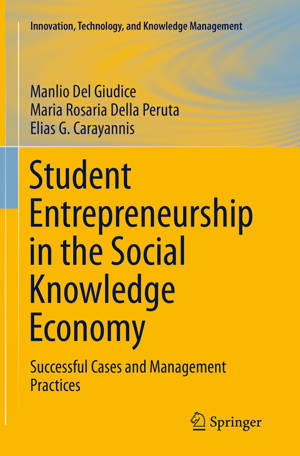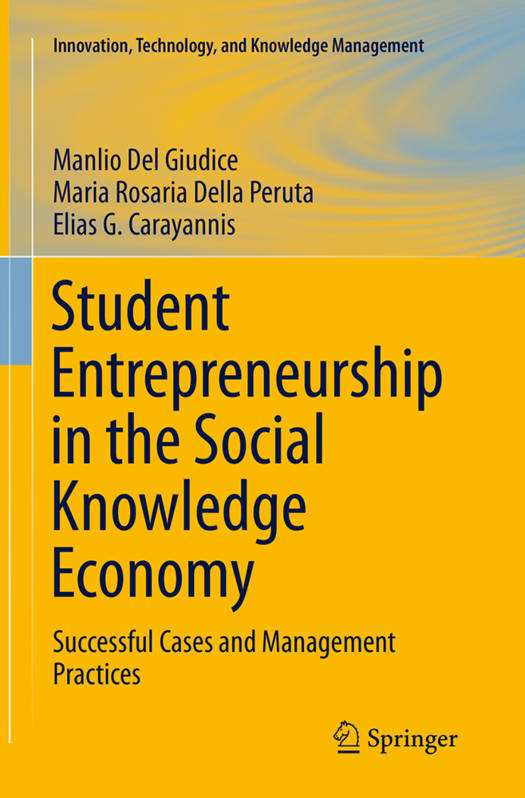
- Retrait gratuit dans votre magasin Club
- 7.000.000 titres dans notre catalogue
- Payer en toute sécurité
- Toujours un magasin près de chez vous
- Retrait gratuit dans votre magasin Club
- 7.000.0000 titres dans notre catalogue
- Payer en toute sécurité
- Toujours un magasin près de chez vous
Student Entrepreneurship in the Social Knowledge Economy
Successful Cases and Management Practices
Manlio Del Giudice, Maria Rosaria Della Peruta, Elias G CarayannisDescription
Traditionally, the study of entrepreneurial behavior focuses on such factors as (i) the personality characteristics that distinguish the entrepreneur from non-entrepreneur and (ii) demographic characteristics such gender, age, familiar antecedents and education. With particular respect to investigating the development, acquisition, and dissemination of entrepreneurial skills and behaviors, the authors focus on the university environment, as a locus of research and innovation, where students are exposed to a wide variety of influences that are enhanced by a high degree of connectivity.
The underlying theme of this volume is to develop our understanding of the sociology of student entrepreneurial behavior and in doing so attempt to synthesize literature investigating individual talent with the literature on concurrent knowledge sourcing in the pursuit of entrepreneurial activities. Specifically, the authors investigate the degree to which access to diverse knowledge (in addition to such psychological characteristics and tolerance of ambiguity and risk taking) influences the nature and probability of entrepreneurial success. Moreover, they explore the role of social media and social networking in facilitating access to distributed and disparate information and knowledge.
Their research addresses such timely questions as:
- Where do entrepreneurial opportunities come from?
- How can higher education best stimulate the creation of firms emanating from young and smart minds in colleges and universities?
- What is the value of MOOCs for frequent, early, and "thick" communication among the various specialties needed to accomplish entrepreneurial projects?
- How do we know whether social media affect students' responses to new knowledge and new ideas?
- To what extent do educational practices affect racial and ethnic differences in student entrepreneurship?
- What is the role of the indigenousminority student entrepreneur in establishing high-technology firms?
The result is a multi-dimensional approach that sheds light on the dynamics of education, knowledge creation, social networking, innovation and new business development.
Spécifications
Parties prenantes
- Auteur(s) :
- Editeur:
Contenu
- Nombre de pages :
- 146
- Langue:
- Anglais
- Collection :
Caractéristiques
- EAN:
- 9783319376509
- Date de parution :
- 17-09-16
- Format:
- Livre broché
- Format numérique:
- Trade paperback (VS)
- Dimensions :
- 156 mm x 234 mm
- Poids :
- 235 g

Les avis
Nous publions uniquement les avis qui respectent les conditions requises. Consultez nos conditions pour les avis.






